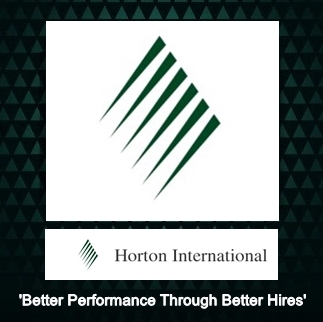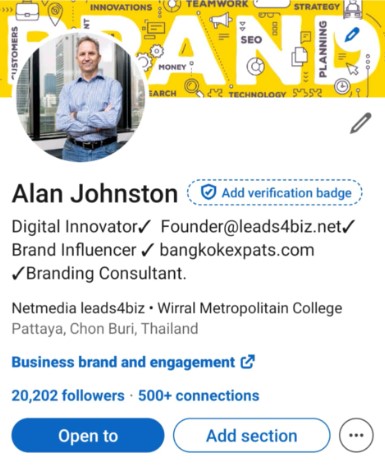In the competitive world of recruitment, finding the right talent for the right role is a critical challenge for organizations. While standard job agencies have long been a go-to solution for many companies, headhunters have emerged as a more effective and strategic alternative. Headhunters, also known as executive search consultants, specialize in identifying and attracting top-tier talent, often for senior or specialized roles. This article explores why headhunters are better than standard job agencies and how they effectively liaise with HR departments in Bangkok to ensure a seamless recruitment process including all relevant Visas for Expatriates
The Limitations of Standard Job Agencies
Standard job agencies operate on a high-volume, transactional model. They typically advertise job openings, screen resumes, and conduct initial interviews before presenting candidates to employers. While this approach works well for filling entry-level or mid-level positions, it often falls short when it comes to sourcing highly skilled or executive-level talent. Here are some key limitations of standard job agencies:
- Lack of Specialization: Standard job agencies often handle a wide range of roles across various industries. This broad focus means they may lack the deep industry knowledge and networks required to identify top talent for specialized or senior positions.
- Reactive Approach: Standard job agencies tend to react to job postings rather than proactively seeking out candidates. This reactive approach can result in a slower recruitment process and a narrower pool of candidates.
- Limited Candidate Engagement: Standard job agencies often rely on job boards and online applications, which may not attract passive candidates—those who are not actively looking for a new role but may be open to the right opportunity.
- Volume Over Quality: The high-volume nature of standard job agencies can lead to a focus on quantity over quality. Employers may receive a large number of resumes, but many may not meet the specific requirements of the role.

The Advantages of Headhunters
Headhunters, on the other hand, take a more strategic and targeted approach to recruitment. They specialize in identifying and attracting top talent, often for senior, executive, or highly specialized roles. Here are some key advantages of working with headhunters:
- Deep Industry Knowledge: Headhunters typically specialize in specific industries or sectors, giving them a deep understanding of the market, key players, and talent pools. This expertise allows them to identify candidates who not only have the right skills and experience but also fit the company culture and values.
- Proactive Talent Sourcing: Headhunters take a proactive approach to recruitment, actively seeking out top talent rather than waiting for candidates to apply. They often have extensive networks and use advanced search techniques to identify and engage with passive candidates who may not be actively looking for a new role.
- Tailored Search Process: Headhunters work closely with employers to understand their specific needs and requirements. They tailor their search process to identify candidates who meet these criteria, ensuring a higher likelihood of a successful hire.
- Confidentiality and Discretion: For senior or executive roles, confidentiality is often critical. Headhunters are skilled at conducting discreet searches, ensuring that sensitive information is protected and that the recruitment process does not disrupt the organization or the candidate’s current role.
- Long-Term Relationship Building: Headhunters often build long-term relationships with both candidates and employers. This allows them to stay informed about market trends, talent movements, and organizational needs, enabling them to provide ongoing value beyond a single hire.
How Headhunters Effectively Liaise with HR Departments
One of the key reasons headhunters are so effective is their ability to work closely with HR departments. This collaboration ensures that the recruitment process is aligned with the organization’s goals and that the right candidates are identified and engaged. Here’s how headhunters effectively liaise with HR departments:
- Understanding Organizational Needs: Headhunters begin by working closely with HR to gain a deep understanding of the organization’s needs, culture, and strategic goals. This involves detailed discussions about the role, the skills and experience required, and the type of candidate who would be the best fit. By aligning their search with the organization’s objectives, headhunters can ensure that they are targeting the right talent.
- Developing a Customized Search Strategy: Based on the information gathered from HR, headhunters develop a customized search strategy. This may include identifying target companies, leveraging their network, and using advanced search techniques to identify potential candidates. The strategy is tailored to the specific requirements of the role and the organization, ensuring a focused and efficient search process.
- Regular Communication and Updates: Throughout the recruitment process, headhunters maintain regular communication with HR. They provide updates on the progress of the search, share insights on the talent market, and discuss potential candidates. This ongoing dialogue ensures that HR is kept informed and can provide feedback or adjust the search criteria as needed.
- Candidate Assessment and Screening: Headhunters conduct thorough assessments and screenings of potential candidates before presenting them to HR. This includes reviewing resumes, conducting interviews, and checking references. By pre-screening candidates, headhunters save HR time and ensure that only the most qualified and suitable candidates are presented.
- Facilitating Interviews and Negotiations: Headhunters play a key role in facilitating the interview process. They coordinate schedules, provide candidates with information about the organization and role, and prepare candidates for interviews. Additionally, headhunters often assist with salary negotiations, ensuring that both the candidate and the organization reach a mutually beneficial agreement.
- Ensuring a Smooth Onboarding Process: Once a candidate has been selected, headhunters work with HR to ensure a smooth onboarding process. This may include assisting with the preparation of offer letters, coordinating start dates, and providing support during the transition period. By ensuring a positive onboarding experience, headhunters help to set the stage for a successful long-term relationship between the candidate and the organization.

Conclusion
In today’s competitive talent market, headhunters offer a distinct advantage over standard job agencies. Their specialized knowledge, proactive approach, and ability to build long-term relationships make them a valuable partner for organizations seeking top-tier talent. By effectively liaising with HR departments, headhunters ensure that the recruitment process is aligned with the organization’s goals and that the right candidates are identified and engaged. Whether you’re looking to fill a senior executive role or a highly specialized position, headhunters provide the expertise and strategic insight needed to make the right hire.
Horton Thailand is focused in the Bangkok area and clients are primarily multinationals and the largest Thai companies. The firm operates across most industry sectors and functional areas with a focus on recruiting the highest-quality local and expatriate candidates for clients with high expectations. Contact them today



